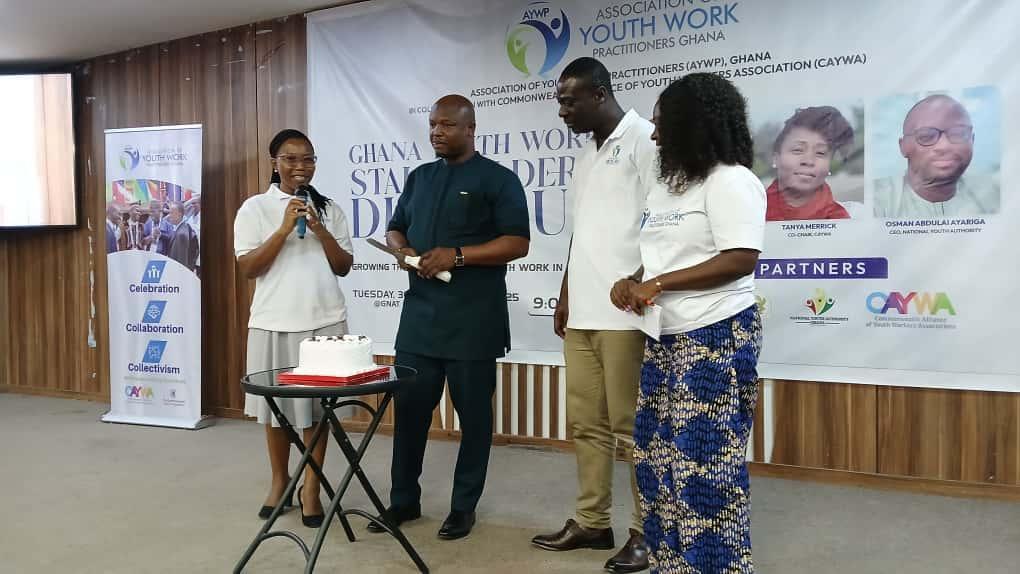Africa-Press – Ghana. The Association of Youth Work Practitioners (AYWP) Ghana has been inaugurated in Accra with a call on stakeholders to recognise and support youth work as a professional discipline critical to the country’s development.
The inauguration affirms the Association’s commitment to setting standards, promoting ethics, and advocating for greater recognition of youth workers.
Alhaji Inusah Mahama, Deputy Chief Executive Officer of the National Youth Authority (NYA), said youth were at the centre of Ghana’s development, and the establishment of a dedicated ministry for youth development and empowerment was a milestone that must be sustained.
He underscored the need for professionalism in youth work, stressing that quality assurance was necessary to ensure that every young person, regardless of background, had access to competent guidance from trained professionals.
“For practitioners, professionalism provides recognition, career progress, and fair remuneration for the invaluable service you render to the nation. For national development, it builds a pipeline of capable professionals who can systematically implement the ambitions of the national youth policy,” he stated.
He pledged the NYA’s support to the Association, saying it would work with youth workers to advocate for policies that protect the profession and integrate certified practitioners into national programmes.
Mr Peter A. Awuni, Coordinator for the Commonwealth Alliance of Youth Workers’ Associations (CAYWA), described the youth work landscape in Ghana as one defined by persistent unemployment and underemployment, despite higher levels of education among the youth.
He noted that while significant interventions had been rolled out, youth work was still not fully recognised as a profession, and investment in the sector remained inadequate.
Mr Awuni introduced six domains of youth development – health and wellbeing, education, employment and opportunity, political and civic participation, peace and security, and equality and inclusion – as critical areas within which youth workers operated.
He referenced the Marlborough House Commitment adopted by Commonwealth Youth Ministers, which called on member states to professionalise youth work through formal education and training pathways, codes of conduct, and national associations.
Outlining the vision of AYPW Ghana, he said the Association aimed to build a country where youth work was recognised and valued, where practitioners were trained and supported, and where they collaborated to influence youth and national development policy.
Ms Tanya Merrick Powell, Co-Chair of CAYWA and Senior Technical Director of the Jamaica Professional Youth Workers Association, applauded Ghana for relaunching the Association, describing it as a critical step in advancing youth development on the continent.
She said youth work was more than policy papers and dialogue, noting that practitioners themselves were often marginalised and excluded.
“We don’t like all the talking. We want to act, because every day we get up through our most important resource – passion – and we serve young people. They are not just beneficiaries but our partners in development,” she said.
The inauguration marks a milestone for Ghana’s youth sector, providing a platform to standardise practices, strengthen advocacy, and ensure that the contributions of youth work professionals are recognised in the country’s development agenda.
For More News And Analysis About Ghana Follow Africa-Press







